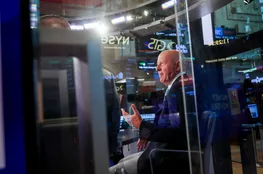The recent strike by Boeing factory workers has ended after more than seven weeks, with machinists voting to accept the company's contract offer, allowing production lines in the Pacific Northwest to restart. The strike was a significant challenge for the aerospace giant, but it's just one of many hurdles Boeing faces as it seeks to return to profitability and regain public trust. The approval involved 33,000 striking machinists, members of the International Association of Machinists and Aerospace Workers in Seattle. With 59% of union members voting in favor, the contract includes a substantial 38% wage increase over four years, signaling relief for the company and its workers.
The machinists who assemble Boeing’s key models, including the 737 Max, the bestselling airliner, and the 777 and 767, play a crucial role in Boeing's operations at its Renton and Everett plants in Washington. Resuming production quickly is vital for Boeing, as the company has been experiencing significant financial losses. According to Gautam Mukunda, a lecturer at the Yale School of Management, the situation had escalated to a life-threatening problem for Boeing. Although workers can return as early as Wednesday or by November 12, Boeing CEO Kelly Ortberg indicated that production might take weeks to normalize, partly due to the need for some workers to undergo retraining.
As production resumes, Boeing faces a broader spectrum of challenges beyond labor disputes. The company must improve financial stability and focus on enhancing the quality of its products along with maintaining robust relationships with its workforce and suppliers. So far, Boeing's management has been criticized for its excessive focus on short-term profits, which has affected its interactions with employees and suppliers negatively. Mukunda emphasized that this approach is unsustainable, especially in sophisticated industries like aerospace manufacturing, where complexity and precision are paramount.
Reinvigorating the supply chain is another test for Boeing. Vendors, who may have had to downsize or finance operations independently during the strike, need strategic attention. Cai von Rumohr, an analyst at TD Cowen, noted lots of complexities accompany revamping their supply chain. Furthermore, Boeing might consider selling assets not core to its business, like Jeppesen Sanderson, to generate capital and stabilize its credit ratings. Ortberg acknowledged the uphill path in a statement to employees, pointing towards the substantial work required to restore Boeing's iconic status.
The revised contract, besides offering wage increases, provides a $12,000 ratification bonus and preserves an additional performance bonus. While there are mixed reactions among union members about the contract acceptance, with some, like Eep Bolaño, feeling it was a concession under duress, others, like William Gardiner, celebrated it as a positive move. President Joe Biden praised the resolution as a milestone towards workplace fairness, emphasizing its significance for Boeing's role in America's aerospace industry.
A prolonged strike would have intensified Boeing's financial woes. Recently, Ortberg announced substantial layoffs and a stock offering to prevent a downgrade of Boeing's credit rating. The walkout, the first since 2008, added to a tumultuous year for Boeing. Following several investigations, Boeing is under scrutiny after safety lapses, including a critical incident involving the 737 Max. These events rekindled concerns about the aircraft's safety, leading to regulatory limitations on production until safety confidence is restored. The mounting safety concerns came after previous 737 Max crashes, resulting in 346 fatalities, leading to significant leadership changes and a legal settlement involving conspiracy to commit fraud.
























